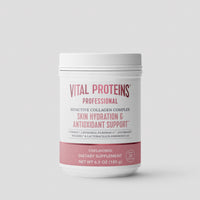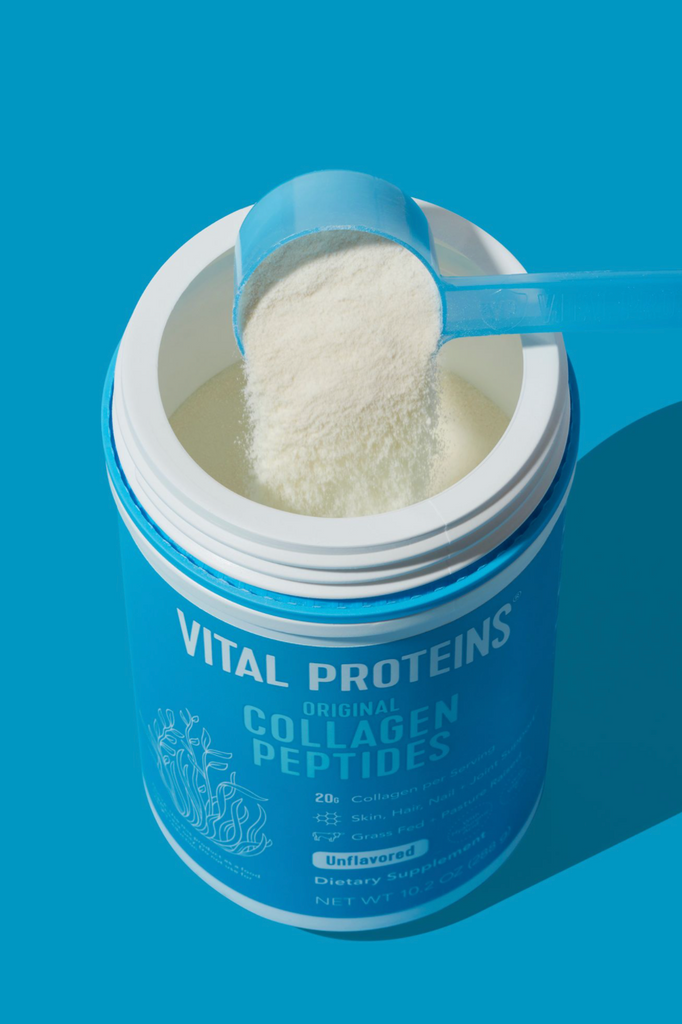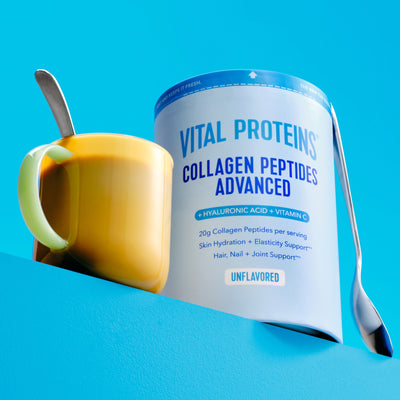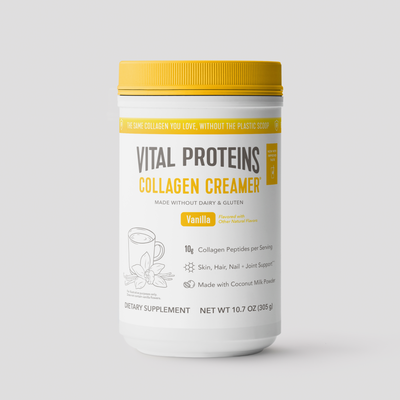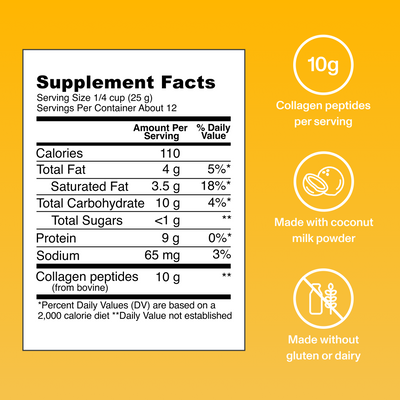When collagen's popularity was first on the rise, many were skeptical that it was just another fad. After all, we've heard similar skincare buzzwords tossed around before, each with their own promises of your best skin ever. The difference with collagen is that it actually delivers. It's the body's most abundant form of protein, responsible for keeping the skin firm, plump and elastic.
The main issue, however, is the amount of collagen we produce starts to decrease in our 20s. "Stereotypically, the breakdown of collagen is more prevalent in facial skin, which is why our face often shows signs of aging before the rest of our body," explains Rachael Burns, a consultant dermatologist.
That's exactly why this topic - collagen for face - is so important. For this, we turned to the experts to learn everything we could to help you put your best face forward.
what does collagen do to your face?
Understanding what collagen does to your face requires a little more knowledge of collagen and how it’s made.
"Collagen is an essential protein that supports most tissues and gives cells structure from the outside," explains Dr. Orit Markowitz, N.Y.C.-based dermatologist and Founder of OptiSkin. You can think of it like a bed frame, adds N.Y.C.-based dermatologist Dr. Joshua Zeichner, who echoes that collagen gives the face structure.
With all this in mind, it's plain to see that the more collagen you have, the better your complexion. "Collagen is an important substance that gives skin elasticity and firmness and helps reduce the signs of aging," says Dr. Markowitz. To add to that same bed frame metaphor, the less collagen you have, the less "springy" the skin becomes. This makes a huge difference in the face alone, reducing fine lines and wrinkles and uneven skin tone.
Related Articles
what is the best collagen for your face?
While there are many different types of collagen (approximately 28, according to Dr. Nathan Brown, Chief Science Officer at Parallel Health), it's types I, II and III that you’ll hear about the most.
Type I collagen, for example, plays a huge role, making up 80-90% of the collagen in our bodies and skin, says Dr. Brown. Meanwhile, type III serves a different purpose: It's for wound healing, but can help with structure and youthfulness as well.
When it comes down to "what is the best collagen for your face?" type I wins, hands down. "Type I is mainly for strong hair, nails and skin," says Dr. Markowitz. You'll often hear the words "beauty" and "skincare" tossed around with this type.
When choosing a collagen, there are many things to think about. N.Y.C.-based dermatologist Dr. Hadley King recommends collagen that is grass-fed and organic. She explains that organic means that the animal was not given hormones, antibiotics or man-made pesticides in its feed. "The feed, however, is not necessarily grass but can be corn or soy. Grass-fed meat means that the animal was pasture-raised."

how can I increase collagen on my face?
Ramping up collagen production starts with these tips and tricks.
Sun protection
Since sun exposure plays a huge role in decreasing collagen, sun protection is the most effective measure you can take to increase collagen on your face.
"Matrix metalloproteinases are proteolytic enzymes that break down collagen," explains Dr. King. "UV radiation increases their activity, thereby increasing collagen degradation." She adds that UV radiation exposure also directly stops the production of collagen.
Take a retinoid
The dermatologists call it the most proven topical anti-aging option. Each drop of serum or dollops of cream also stimulates collagen production.
"They increase collagen content by both directly stimulating collagen formation and by inhibiting collagen breakdown," says Dr. King. The skin is also plumper and more elastic thanks to the improvements in skin elasticity. Something similar to try is hydroxy acids, says Dr. Zeichner. Like retinoids, "They act as a signal to tell your skin cells to wrap up new collagen production."
Take a collagen supplement
While things like collagen injections exist, there are some drawbacks. They're more expensive and should be done by a dermatologist or plastic surgeon. Collagen supplements, on the other hand, are having a huge moment in the world of skincare.
"Collagen supplements can give your body the exact nutrients you need to produce more collagen," says Dr. Brown. "An example of a good source of collagen is bone broth; in addition, there are many collagen hydrolysate supplements like Vital Proteins®."**
Speaking of Vital Proteins, we recommend starting your collagen journey with Vital Proteins Original Collagen Peptides. Dr. Brown says that you can stimulate your skin to produce more collagen by using small molecules, such as peptides: "They signal to your skin cells to produce collagen."
Decrease your sugar
Red velvet cupcakes, margaritas, and cappuccinos may look good on your Instagram feed, but it’s a whole other story for your complexion.
"An excessive intake of sugary foods over long periods of time can cause glycation," says Dr. Markowitz. "Glycation occurs when the sugars enter the blood circulation and attach to collagen to form advanced glycation end products." In other words, cutting back on sugar does some pretty sweet things to your skin.





